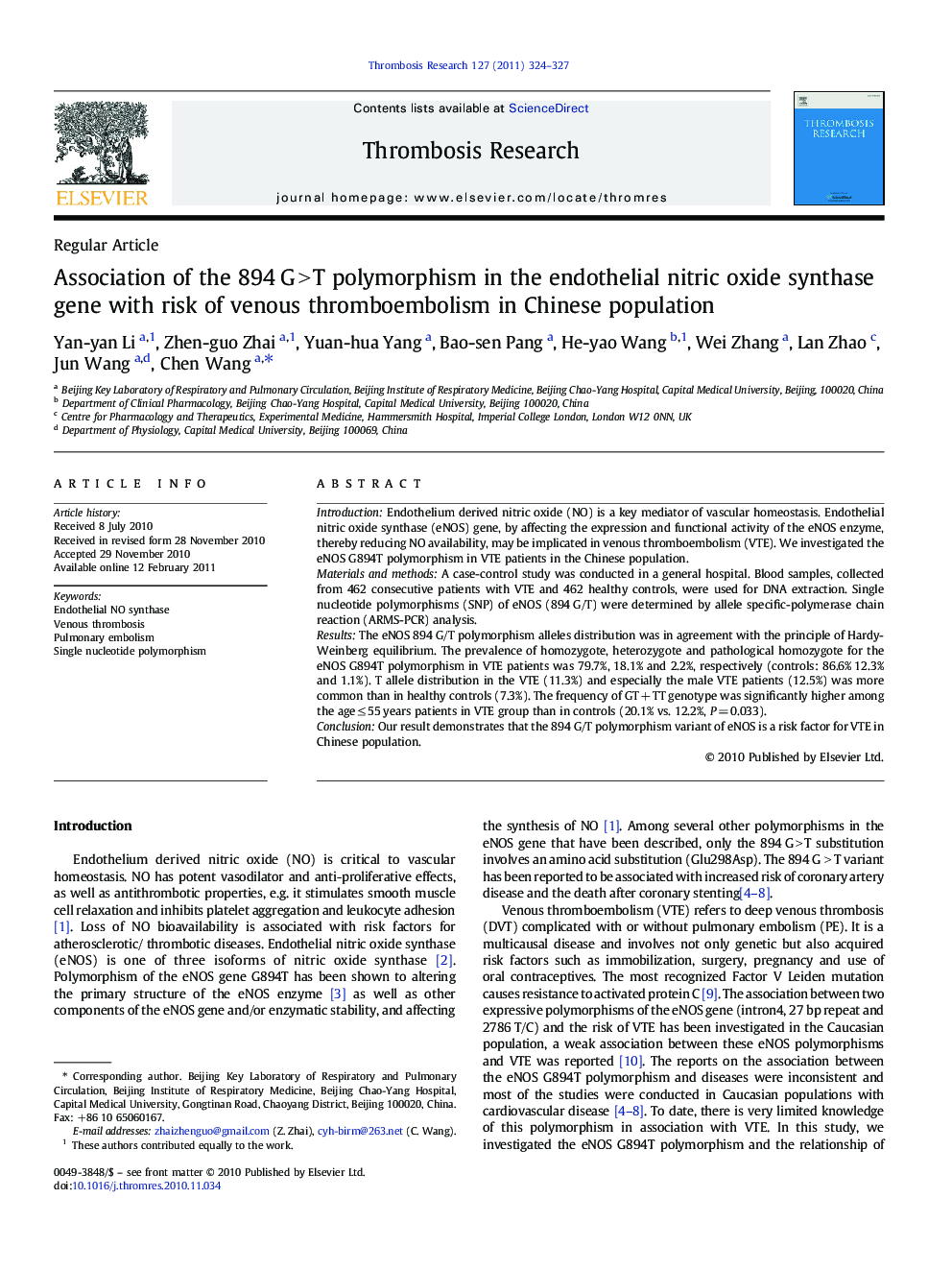| Article ID | Journal | Published Year | Pages | File Type |
|---|---|---|---|---|
| 3027627 | Thrombosis Research | 2011 | 4 Pages |
IntroductionEndothelium derived nitric oxide (NO) is a key mediator of vascular homeostasis. Endothelial nitric oxide synthase (eNOS) gene, by affecting the expression and functional activity of the eNOS enzyme, thereby reducing NO availability, may be implicated in venous thromboembolism (VTE). We investigated the eNOS G894T polymorphism in VTE patients in the Chinese population.Materials and methodsA case-control study was conducted in a general hospital. Blood samples, collected from 462 consecutive patients with VTE and 462 healthy controls, were used for DNA extraction. Single nucleotide polymorphisms (SNP) of eNOS (894 G/T) were determined by allele specific-polymerase chain reaction (ARMS-PCR) analysis.ResultsThe eNOS 894 G/T polymorphism alleles distribution was in agreement with the principle of Hardy-Weinberg equilibrium. The prevalence of homozygote, heterozygote and pathological homozygote for the eNOS G894T polymorphism in VTE patients was 79.7%, 18.1% and 2.2%, respectively (controls: 86.6%,12.3% and 1.1%). T allele distribution in the VTE (11.3%) and especially the male VTE patients (12.5%) was more common than in healthy controls (7.3%). The frequency of GT + TT genotype was significantly higher among the age ≤ 55 years patients in VTE group than in controls (20.1% vs. 12.2%, P = 0.033).ConclusionOur result demonstrates that the 894 G/T polymorphism variant of eNOS is a risk factor for VTE in Chinese population.
